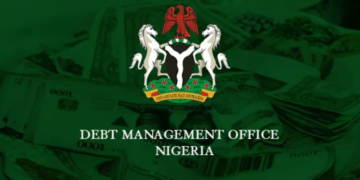Nigeria might have heaved a sigh of relief after Justice Robin Knowles of the Commercial Courts of England and Wales, ruled in its favour in a case against Process & Industrial Developments (P&ID) Limited, which had been seeking to enforce a controversial $11 billion judgement debt against the country following a gas deal that went bad. The court, however, agreed with Nigeria that the contentious gas processing contract was obtained by fraud by bribing Nigerian government officials.
P&ID is an engineering and project management company registered in the British Virgin Islands and operated by shady businessmen. At the time, P&ID did not even have a website.
The gas deal was purportedly struck in January 2010 under the administration of the late President Umaru Musa Yar’Adua who was then in a Saudi Arabian hospital.
Under the so-called deal, P&ID and the Nigerian Government entered into a 20-year agreement – known as the Gas Supply and Processing Agreement (GSPA) – to refine natural gas for powering Nigeria’s electricity grid. P&ID would refine the gas and give it to the Nigerian government for free and would make its profit from selling the by-products (Natural Gas Liquids) on the international market. In return, the Nigerian government would guarantee the supply of wet gas and construct pipelines and other infrastructure to transport the gas to the processing facility.
RELATED: Reps Probe All Parties In Controversial P&ID $11bn Deal
The GSPA would have been very profitable for both P&ID and Nigeria and would have helped to generate an additional 2,000 megawatts of power for the national grid. The deal fell through because Nigeria could not fulfill its part of the bargain. An initial settlement agreement of the dispute for $850m was passed on from the Jonathan administration to the Buhari government in 2015.
In January 2017, a UK tribunal ruled that Nigeria was liable to pay $6.6 billion to P&ID for failing to deliver on terms agreed in the gas facility contract. The amount represented the profit the firm would have made in 20 years had the deal been activated. In 2020 as the company pushed to enforce the arbitral award, the UK court again ruled that Nigeria’s state-owned assets could be seized if the country refused to settle its bill, which had risen to $9.6 billion because of accrued interest. Nigeria was granted the right to appeal but asked to deposit $200 million in the meantime.
As the matter took on graver dimensions, the Buhari administration wisely refused to pay the monstrous judgement debt for a contract that never even got off the ground and decided to challenge the matter in court. It proceeded to investigate the contract with the anti-graft agency, the Economic and Financial Crimes Commission (EFCC).
It was the painstaking investigation by the EFCC that yielded the evidence Nigerian Government’s lawyers used to prove that the entire gas contract was a product of fraud. A contract of that magnitude did not follow any due process for contract award. The deal was not known to then attorney general, Michael Kaase Aondoakaa, SAN; Tanimu Yakubu, Yar’Adua’s chief economic adviser; Engineer Emeka Ezeh, then director general of the Bureau of Public Procurement (BPP); the Ministry of Finance, and the presidency. In fact, under Nigerian procurement law, any oil and gas contract worth $20 million and above must go to the Federal Executive Council (FEC) and secure the BPP Certificate of No Objection before approval.
Surprisingly, such a huge contract was signed without publicity; everything was done to push Nigeria into a financial booby-trap.
Nigerians have hailed the recent UK court ruling. President Bola Tinubu described it as a victory for an exploited continent which has been on the receiving end of unjust economic malpractices and overt exploitation, with connivance by private firms and corrupt state officials.
Former President Muhammadu Buhari described the quashing of the arbitration award as thwarting an “attempted heist of historic proportions” against the country, saying it was an attempt to steal one-third of the nation’s foreign reserves.
“Had Nigeria lost, it would have required schools not to be built, nurses not to be trained and roads not to be repaired, on an epic scale, to pay a handful of contractors, lawyers and their allies – for a project that never broke ground,” he said.
The P&ID case offers lessons for Nigeria. First of all, as suggested by experts, Nigeria should put in place a well-articulated National Arbitration Policy to handle contract matters.
Two, it is believed that there are thousands of such arbitrations involving Nigeria across the world. We urge the Tinubu administration to set up a high-powered team of patriotic experts to review all such cases. Also, Nigerian public officials who negotiate contracts on behalf of the country should be made to face stiff sanctions if found to have mortgaged the interest of the country for personal gain or out of neglect. The government should use this case to set an example for other bureaucrats who may want to trade Nigeria off for personal reasons.
Meanwhile, in our opinion, Nigeria should show appreciation to all those who stood their ground and worked assiduously and patriotically to achieve this victory over a foreign enemy of state and its local collaborators.





